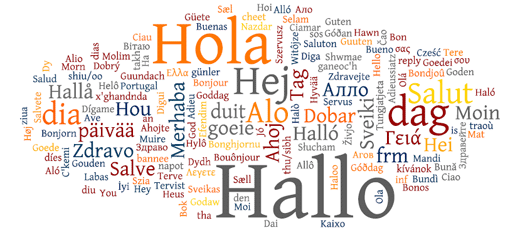Learn a Language, Save a Language
Did you know that over half of the 6,900 languages in the world are on the verge of extinction. The globalization of the world is unwittingly leading many to lay down their native languages for more useful trade languages. Thousands of languages have been lost in this way over the centuries, and many more are on the verge of going extinct. Eighty-five percent of languages spoken today are spoken by less than 100,000 people, leading many to believe that as many as 50% of the languages spoken today could be lost by the year 2100.
How can this great loss to human history be subverted? Language and culture are tied together. Language is used to tell stories, dgfev online casino write songs, share proverbs, and express a way of life that another language”s vocabulary is not equipped to express. When a language is preserved, the culture can endure.
As I read about these things on Discovery today (http://dsc.discovery.com/tv-
What if every language that is spoken now was recorded and uploaded to the cloud for anyone around the world to have access to and learn from? As I ask myself these question, I think to myself how glad I am to be doing what I”m doing with Lango.

Lango a language app.
Learn any language, any dialect, anywhere.
Read More








